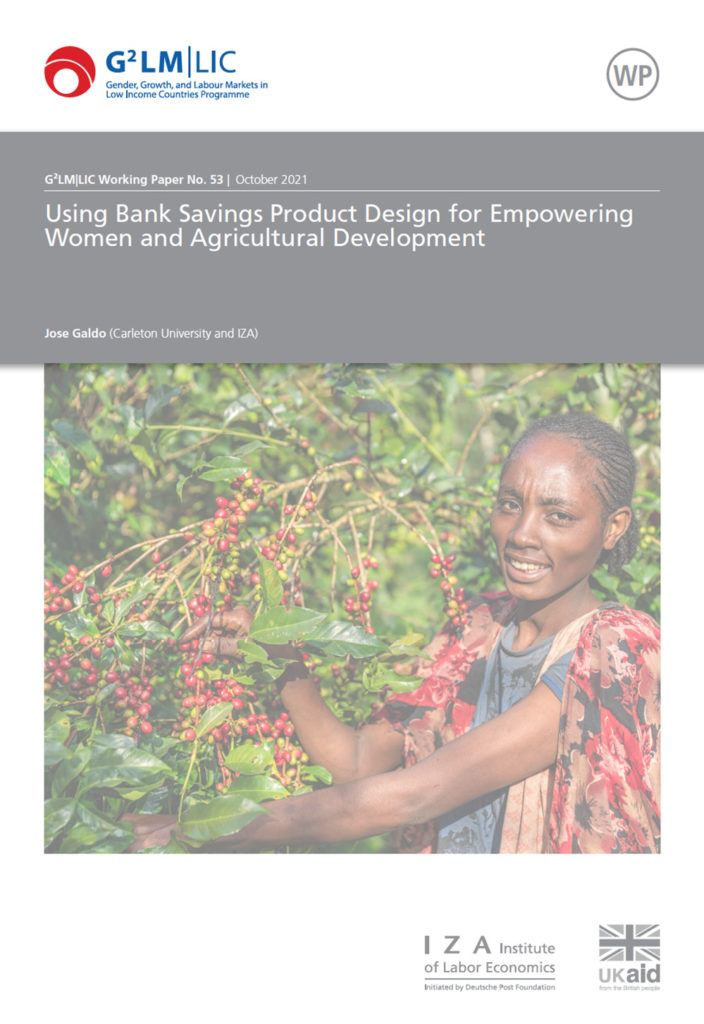Access to formal deposit accounts is still far from a reality for 1.7 billion adults worldwide, most of them living in developing countries. Therefore, savings by the poor have become a priority in the development agenda and savings mobilization strategies for the poor are widely seen as key initiatives for agricultural development, food security and economic growth. In Ethiopia, the setting of this working paper’s study, bank savings account penetration reaches only 12 percent of adults with primary education, while the gender gap has widened even as total financing available to the world’s poor has increased steadily.
This paper thus investigates a financial intervention that provides small subsidies to cover the costs of opening formal savings accounts to 1.200 agricultural households in Ethiopia. Three groups are targeted as part of the intervention: single deposit account in the name of the household head (90% being male), joint deposit in the name of both husband and wife, and a pure control group. Results from the intervention show that households with the joint account demonstrate strong positive labor responses in comparison to the other groups, just as significant gains for school-aged girls. These findings can be understood as coming from an increased bargaining power of women in households where they co-own the bank savings account. Read the detailed Working Paper here.
